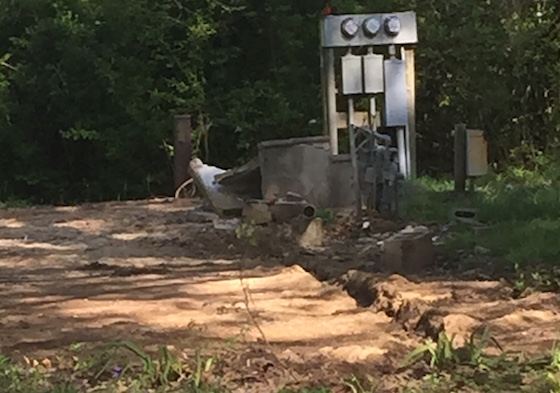The last article about the mobile home park industry in the Wall Street Journal was in 2012 and titled “Tide Changes for Manufactured Housing” and it slammed the industry by declaring that “investors have soured on the sector”. So when the Wall Street Journal brought out its latest article nearly two and a half years later, it was quite a shock to see the change in sentiment. It seems that the Wall Street Journal now loves the industry, and the article reads like a sales brochure. Here are the key points of the article that every investor should be aware of.
The title and sub-title says it all
The article name is “Low-Cost Housing Boosts Mobile-Home Park Operators” and the subtitle is “Three Manufactured Housing REIT’s Generate 44% Total Return”. If you think that’s a good start, check out the first paragraph “strong demand for low-cost housing is proving a boon for one of the real-estate industry’s least glamorous sectors: companies that operate mobile-home parks”. Have you ever seen a more buoyant opening to a piece in the Wall Street Journal? I haven’t.
Key business points discussed
The structure of the article is basically a list of all the positive points of the industry right now. They are, in the order of appearance, 1) you can’t build any new parks, so the supply is frozen 2) the consolidation of the industry is reducing competition and raising values 3) demand has allowed for raising rents 4) retirees ready to downsize, snowbirds, and lower-income families are turning to mobile homes because they are so much cheaper than traditional homes 5) mobile homes rent for less than apartments 6) the median price for a SFH is $202,600 and for a MH is $64,200 7) apartment rents in the U.S. now average $1,131 per month and 8) the growth of the baby boomer segment of retirees leads to greater demand by itself. This is extremely important to have an affirmation like that of the industry’s dynamics by no less than the WSJ.
The real economics are even stronger than the article suggests
The article had two facts that only a true park owner would know are wrong. First, it states that the median price for a mobile home is $64,200. That’s true if you only count new homes that are 70% doublewides (that’s the industry stat). The real price, we all know, is more like $30,000 for new singlewides and more like $5,000 for old round roofs. So the price differential is not $202,500 vs. $64,200, it’s actually $202,500 vs. $15,000 or so. That’s a much stronger case than the article described. Additionally, it states that mobile homes rent for around $800 per month, when the truth is that most rent for around $500 per month. Any way you cut it, the true story is even more unbelievable than the article.
The article referred to the industry as “mobile home park” and not “manufacture home community”
When the New York Times article came out about Dave and I, we were pelted with insults over the use of the words “mobile home park” and “trailer park” and not “manufactured home community”. Well, the WSJ article came out and nobody said a word about the word choice. Hypocrisy? Of course. But nobody can argue with the words now that they were used by the WSJ and embraced by the three REITs in the article. Eugene Landy of UMH saying that his company has been buying “mobile homes and renting them out”? Heresy, surely! But not anymore. I guess the name game is over and “mobile home park” has come out the victor.
The big picture
In April 2014, the glowing article about Frank & Dave in The New York Times came out, which heralded the industry as a win/win in which owners make money and tenants get a decent place to live. Now in April 2015 – almost exactly one year later – the Wall Street Journal brings out a similar story, telling the tale that affordable housing is in just the right position to outstrip the returns of all other forms of commercial real estate. We have always said that what creates value in the industry is the “stigma” of trailer parks, which scares away most investors and results in high cap rates. As the industry becomes accepted, like any other real estate niche, cap rates will decline and values will soar. The 10% cap rate of today will be re-valued to 7% cap rates in the future. That’s why there’s a window of opportunity in this business that many people do not grasp – there’s a huge overnight value boost simply from gaining acceptance, in the same manner that self-storage became mainstream.
Conclusion
The Wall Street Journal article is a much bigger deal than many people may realize. If you look back at the 2012 article, and compare it to the 2015 model, you will find a 180 degree change in sentiment towards the industry, and it’s one that most lenders and appraisers will take note of. We think that the shift of mobile home parks from “weird” real estate to mainstream has definitely begun, and those who own parks when the shift gets in full gear will be benefit enormously.


